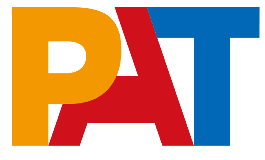
PAT Certified Public Accountants Limited
匯昇會計師事務所有限公司
請不要猶豫,聯繫我們的香港註冊執業會計師:
薪俸稅
課稅範圍
於香港產生或得自香港的職位、受僱工作及退休金入息均須課繳薪俸稅。
至於入息是否「於香港產生或得自香港」,是決定於受僱工作(即入息來源)的地點。「於
香港產生或得自香港的入息」一詞,包括所有納稅人因在香港提供服務而獲得的收入,
但此項定義並不影響該詞的一般廣泛含義。《稅務條例》對那些在本港作短暫停留的海
員及飛機服務員,以及那些曾在香港境外繳納類似香港薪俸稅的稅項的人士均有特別規
定。
「入息」一詞包括各種得自僱主或他人的入息和額外賞賜。度假旅程利
益、股份獎賞及股份認購權收益,均屬應課稅入息。而股份認購權收益在行使、轉讓或
放棄股份認購時,才須納稅。即使僱員在行使認購權當日已離職,該收益仍須課稅。
就僱主或相聯法團免費供給寓所(包括由僱員自賃寓所,而由僱主退還全
部租金)在評稅時所計算出來的「租值」,亦是應課稅入息。如獲提供的居所為一樓宇
單位或服務式住宅,則「租值」是僱主和相聯法團給予該僱員的薪酬總數(扣除了支出
(但不能減個人進修開支)和折舊後)的 10%。納稅人可選擇以應課差餉租值代替以
10%計算的租值。如獲提供的居所是酒店、宿舍或公寓,「租值」則按得自僱主和相聯
法團的全部入息減去適當扣除額後以 8%(佔用不超過兩個房間)或 4%(佔用不超過
一間房間)計算。若僱主提供一樓宇單位並指定給超過一名僱員共用,計算「租值」的
方法與酒店、宿舍或公寓相同。
薪俸稅及個人入息課稅申索的免稅額
免稅額
如你符合指定條件,便可享有基本免稅額或申請其他免稅額。本文介紹有關各類免稅額的資料,以及這些免稅額如何減少你的稅款。
基本免稅額你無須提出申索亦可享有基本免稅額。假如你在有關年度已婚並已獲給予已婚人士免稅額則不能同時享有基本免稅額。
已婚人士免稅額
如你在某課稅年度內的任何時間屬已婚並符合以下情形,便可申索已婚人士免稅額:
•並非與配偶分開居住;或與配偶分開居住,但有供養或經濟上支持對方;及
•你配偶沒有任何應課薪俸稅入息;或你及配偶已選擇合併評稅;或你及配偶已選擇個人入息課稅。
就《稅務條例》而言,「婚姻」一詞指由男性與女性建立的異性婚姻關係。根據《稅務條例》第2條,「配偶」一詞的定義是指「丈夫或妻子」;而「丈夫」是指已婚男性,「妻子」則指已婚婦女。
子女免稅額
如你供養的未婚子女在有關課稅年度內符合下列條件,你便可申索子女免稅額:
未滿 18歲;或
年滿 18歲但未滿 25歲,並在大學、學校或其他類似的教育機構接受全日制教育;或
年滿 18歲,但因身體或精神問題無能力工作。
「子女」一詞是指:
你的親生子女、領養子女或繼子女;或
你配偶或前配偶的親生子女、領養子女或繼子女。
稅務資料 個別人士/公司業務
保存業務紀錄
1. 稅務條例第51C條規定每名在香港經營某行業、專業或業務的人,須就其入息及開支以英文或中文備存足夠的紀錄,以便其應評稅利潤易於確定;
2. 該等紀錄須保留為期最少 7年;
3. 無合理辯解而未能遵辦稅務條例的規定,最高罰款為$100,000;
4. 稅務條例所列出的紀錄,包括 :─
a. 記 錄 收 入 及 付 款 , 或 入 息 或 開 支 的 帳 簿 ;
b. 憑單、銀行結單、發票、收據;
c. 該人在該行業、專業或業務方面的資產及負債紀錄;
d. 該人日常在該行業、專業或業務方面所收取及支出的一切款項的一切記項的紀錄;
e. 凡該行業、專業或業務涉及貨品買賣 ─
i. 在該行業、專業或業務時所購買及售賣的一切貨品、出售的紀錄,該紀錄須顯示有關貨物及買賣雙方的足夠細節,以令局長能輕易核實該等貨物的數量及價值及買賣雙方的身分,以及與前述事項有關的一切發票;
ii. 該人於年結當日所持的營業存貨的陳述書,以及清點存貨的一切紀錄,而有關的營業存貨陳述書乃根據該等紀錄而編製的;
f. 凡該行業、專業或業務涉及提供服務,須顯示所提供的服務的足夠細節,以令局長能輕易核實各記項的紀錄。
物業稅
課稅範圍
物業稅是向本港土地及∕或建築物的擁有人(「業主」)所徵收的稅項,
計算辦法是將物業的應評稅淨值以標準稅率計稅。自 2011/12 課稅年度起的標準稅率為
15%。
評稅的基礎
物業的應評稅值是根據為換取物業的使用權而付出給業主的代價而釐
定。代價包括已收或應收的租金總額、為樓宇使用權而支付的許可證費用、整筆頂手費、
支付予業主的服務費和管理費、以及由住客支付的業主開支(例如: 修理費)。物業的
應評稅淨值,是以應評稅值(扣除業主同意繳付及支付的差餉和不能追回的租金後)減
去 20%作為法定的修葺及支出方面的免稅額後所得出的數目,其他費用如地租及管理費
都是不能扣除的。曾作不能追回租金扣除而其後收回的款額,須在收回的年度視作代價
計算。
供業主用作商業用途的物業
法團在香港出租物業,會被視為在本港經營業務,而須就其物業收入繳納
利得稅。不過,如來自應課物業稅的收入已包括在納稅人所得的利潤內評定利得稅,或
物業由業主自用,以賺取此等利潤,則已繳付的物業稅會用作抵銷應繳付的利得稅。多
繳的物業稅將獲退回。除上述安排外,在本港經營行業、專業或業務的法團,則可以書
面向稅務局局長申請豁免繳付可從利得稅內抵銷的物業稅。